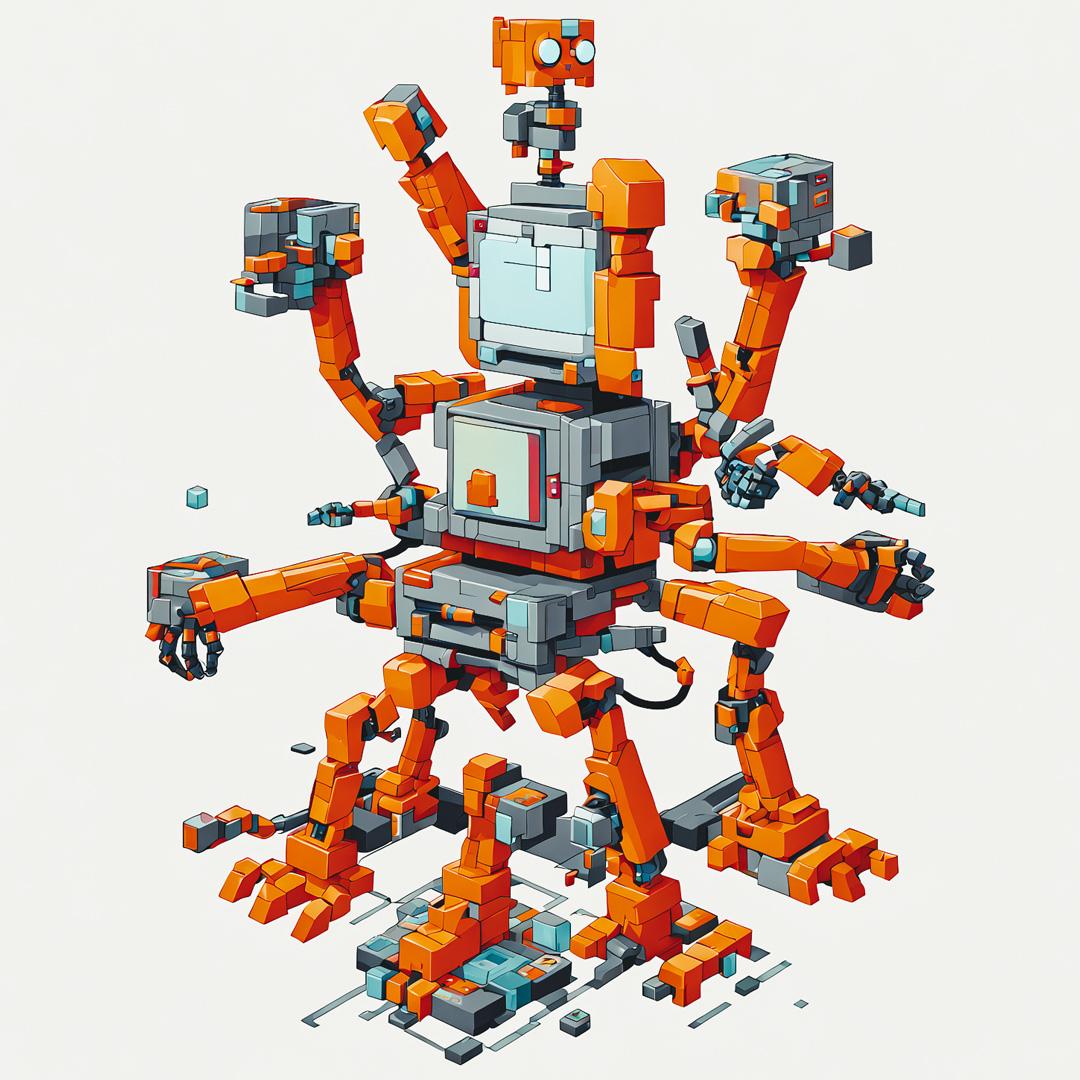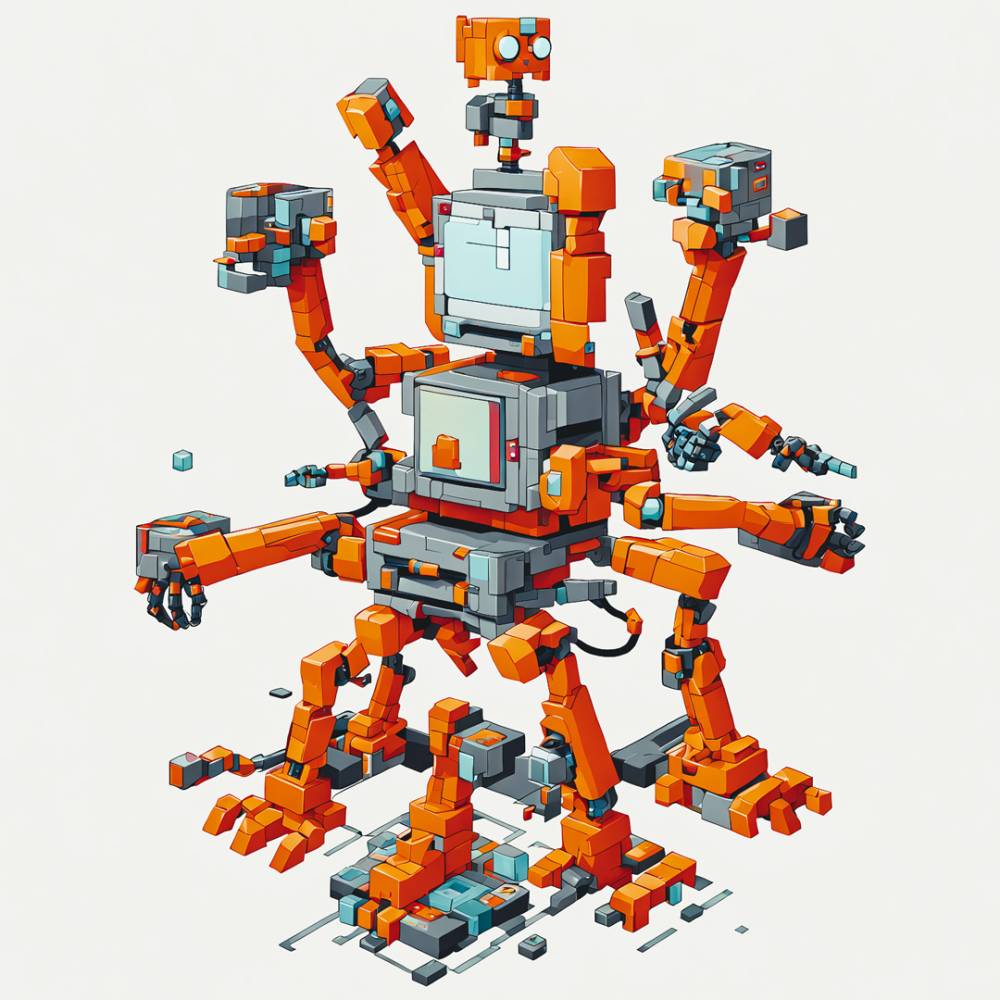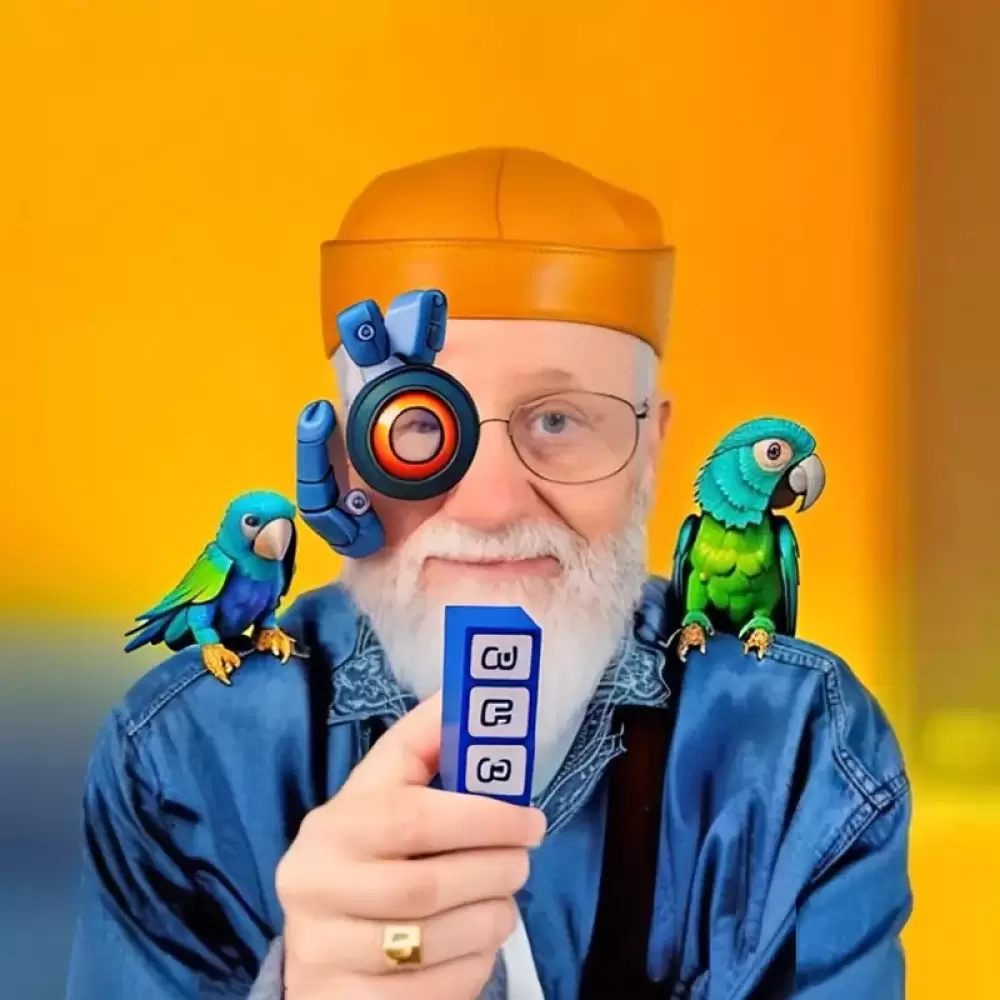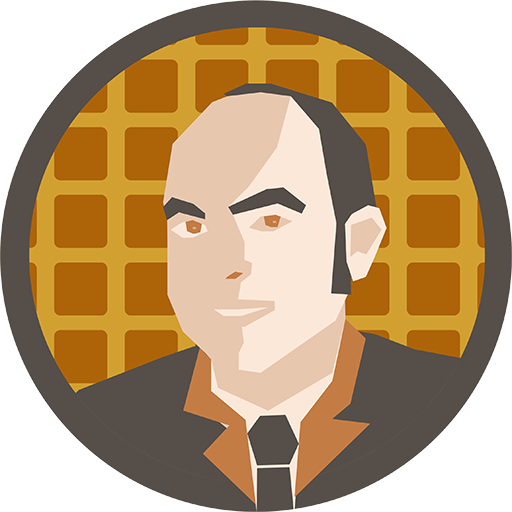Blowing the soul into a dead CPU 2023-11-27 18:15:16
Station One - Apprentice
The story begins with the time when the gears of complex machines performed tasks that required human beings to have the necessary time or mental preparation to complete. As different sciences progressed, this machine work became more complex. Even the eye or mental counting of the abacus gave way to the indicators of the calculator. With the development of the binary computer system, we could tell the machine something and ask it for it. For example, we would store answers in the machine that would answer them when a specific question was asked. Here, the need for a database of all the answers that could cover more questions was felt. The more specialized and more appropriate these answers were to the conditions, the more excited we would be to hear them. Because it created the illusion of intelligence for us, which seemed unlikely from a soulless and lifeless machine.
Station Two - School Homework: Memorize and Read in Class
As the number of possibilities that had to be taught to the machine increased, so did the problem of storing and processing information. The volume of our daily use of this information skyrocketed. Once upon a time, to use a personal computer, we would come home, after washing our hands and face, when we went to the kitchen to pour tea, we would press the key on the computer case on the way to the kitchen so that after counting and testing the health of each individual part, Windows or any other operating system would be ready for use. The time for using the same questions and answers was limited to the same time of eating freshly brewed tea. But now almost all of us carry at least one machine with us, we call them tablets, smartphones, smartwatches, smart TVs, and other smart things. Here, there was a need to move a lot of information on the communication platform. The need for a new method for classifying and filtering information was felt so that it could be used in a smaller, more specific, comprehensive, and at the same time faster and less bulky volume of information. Simple answers that in the past did not exceed a few hundred sentences have now become big data. This means that the answers also change with many variables.
Station Three - Let's Get Lost Together, Find Together, Be Happy Together
Now we can analyze a large volume of data. But this analysis itself can create newer answers in our database. We call the methods of understanding the new answers to our questions from the path of information filtering "machine learning". Learning is always trial and error and because it happens in the same machine, it is strangely fast. Just as in the past, humans had to migrate to a distant city with a caravan to acquire knowledge and learn in hardship, later they resorted to books, magazines, radio, and television, and now they can be present somewhere in sound and image by touching a part of the screen of their smartphone. From those distant times when the masters of a particular science lived in a place far from strangers, to now that you can find all the people who agree and are interested in a topic with the help of a search engine, and exchange information with them. All of these have greatly increased the time it takes for knowledge to become complete and comprehensive, and as a result, the lived experiences of today are much, much greater than in the past. Increased experience leads to the creation of new solutions to everyday problems.
The interesting thing is that the internet has allowed us to use each other's solutions and experiences, from everyday things to slightly more complex issues that once had to be learned over a long time in the presence of a certain master who taught it with great charm, today it is enough to type it in a search engine, ask your voice assistant, you will find text, sound, or video of it that will completely solve your problem in a very short time. There is no need to take a multi-term course containing unnecessary issues and margins to learn something trivial or a specific skill. It is enough to sharpen your axe with focus at that moment.
Station Four - Digital Shaolin Temple
Now we stand at a point in human history where our learning and solutions solve problems much faster than before. A kind of experience larger than an individual, an experience of the type of bee colony or cod fish that has not made us faster and we may not even remember what we did before this connection, how we found someone in another city or on the other side of our city with a few lines of address, how we even memorized different phone numbers, or even when we listened to the radio and it was the one who told us what to listen to and what not to. A song that was played entirely to the director's taste might be to our liking or against our liking. But we listened to it because at that time, if we took our ears off the radio or our eyes off the TV for a moment, we would miss important things. Perhaps we will remember that once, to watch the next episode of the nightly series, we had to sit in front of the TV at a certain time at home, and God forbid that the power went out on the night, or the wrong episode was broadcast, or the TV thought it was appropriate to steal a few minutes from our favorite series to show us something else.
All of these conditions have given us a world with shared lived experiences, shared solutions, and shared relative independence of what we want, when we want, how we want, and how that desire should be. What product do we want from where in the world, or do we want to live in the way of which people? These are things that have only recently been available to everyone in the past hundred years.

Station Five - Universal Senses
Now the answers and solutions to our questions and problems come from a large memory that is classified, ranked, and selected based on our needs by the machine. The issue becomes interesting when a global answer to a problem is not provided by the machine and is customized based on many variables including our personality, biography, geography, or access to our tools.
This is where a big explanation is needed: Smart is not "intelligent". In fact, the "smartening" of things from smartphones to self-driving cars to TVs and other gadgets all come from the "machine response" to our needs, and because that response is very effective in meeting our needs, it seems "intelligent". In fact, the answer is nothing other than the answer we can get. Any other answer that is not possible for us is not intelligent!
In the same way, the term "artificial intelligence" is actually the "best answer" to us.
If you ask a machine for the answer to a problem near the North Pole, the machine will give you the "feasible" solution for that geography, otherwise, we will definitely consider it "stupid"!
Station Six - Tell Me Why
Humans are perhaps prone to error. There are many reasons for this, perhaps one of the reasons is that we are always thinking. Because we are always talking, even if no sound comes out of us, we talk to ourselves, what do we say? Everything, and this "everything" sometimes brings us trouble and we make mistakes. And here is where the machine is miles ahead of us, the machine's senses are focused. So sometimes they appear better than us. It does something billions of times without fail. So it sometimes appears better than us.
I must point out that this progress is not for this time. Instead of humans turning the millstone themselves, they used windmills, instead of driving a carriage on busy roads, they built a road with a metal edge that a strong machine with attached loads would travel at speed. We have thrown the hard calculations on the machine's neck and even the landing and takeoff of our airplanes are done by the machine. Without fail!
But now is the time to use the machine to solve more of our problems and to reduce mistakes.
At a point in history, machines took on the power of our arms. Another time, simple calculations and then complex calculations. But now they have gone further. They can also do research instead of our researchers, guide us instead of our consultants, and encourage us in future matters instead of our secretaries and assistants.
In general, it can be said that just as in a time in human history, humans threw the jobs that relied on their arm strength on the machine, another time, mail carriers moved a very small amount of mail, because the main burden fell on the shoulders of the machine.
But what is happening to human resources now?
Almost any job that deals with "information source" / "memory" and "cognitive pattern" is becoming unemployed. Let's go to a part of this job transition that is in complete conflict with our parents' wishes for us as children. There are almost no parents who do not want their child to become an engineer or doctor in the future. I hope that this desire is less common among parents today because these jobs are close to unemployment and uselessness.
A general practitioner uses his "memories" to find the "pattern" of the disease. While a skilled doctor is someone who has more experience. It is as clear as midday on a summer day that the above characteristics are a fat bite for the machine!
Consider an engineer who needs to know formulas for structural calculations. He refers to his "memory" to find them and calculates them with a machine based on the "calculation pattern"! A more experienced engineer is one who has eaten more dirt and has more experience, in other words! Another thing has been added to the machine's favorite job menu.
To add to the appeal of the topics above, it is important to mention that when a doctor examines you, he may see you after a while or for the first time. Today, most of us have wearable devices such as smartwatches that are always monitoring our health, and a smartphone that knows how many calories or fat we have eaten, how much we have walked, what symptoms we have searched for, or what mood we have had. It is as if a doctor has been taking care of us around the clock, in a way that has become our family doctor and will act beyond a very skilled doctor.
Right now, you can refer to the courses you "passed." These two criteria, namely "memories" and "recognition and use of patterns," are enough for the second applicant for your job to be "artificial intelligence." And if you think that your expertise is greater than his, remember that you are only one person and the machine is a large network the size of the world of machines that are doing, learning, and solving problems. A task that even if Avicenna imprisoned himself in the library for a lifetime, he would not be able to match it.
Seventh Station - Alfred Nothing
Watching an acrobatic jet air show is an indescribable pleasure when you realize the courage and skill of the flying team. What makes you want to see a few jet planes that emit colored smoke, is your expectation for something to happen. It is an unexpected event that turns from an accident to a legend by the pilot's skill. A circus where all events happen according to a certain order and nothing unusual happens in it is only good for the machine. Machines actually buy tickets to see the movement of the secondhand and cheer every three seconds. But humans get excited about the same events. Imagine if the internet was full of clips of cars moving at intersections without anything happening. Imagine a cook cooking a meal without his frying pan catching fire. This is beyond our patience. The same day-to-day life that we travel to escape from it and taste a different climate.
Eighth Station - Condemned to Error
As I write these words, artificial intelligence has become a serious concern for people. People who work in the IT field are now facing a competitor without a competitor like a machine. Alan Turing's dream machine is now on the rampage. The interesting thing here is that another group is trying to build a machine that checks the output of the first machine to see if it was written and compiled by a machine or if a faulty human is working.
Artificial intelligence is now testing self-driving cars not on real streets but in a computer-simulated environment with computer humans, pedestrian errors, other cars, and any type of unpredictable event that can happen to a machine. The interesting thing here is that these tests happen millions of times a day and even more interesting is that they are not reviewed by computer engineers but are read and learned by the machine itself.
Imagine a concrete structure built by an engineer, on which various destruction and material tests have been performed, carefully monitored, and data recorded, and another structure built on the basis of previous information and day after day. The big difference is that if this structure is built in a virtual environment, it can be destroyed and rebuilt in a fraction of a second and the information of the new structure can be extracted. This experiment has been tested millions of times with the geography of other parts of the world and the findings have been compared, refined, and concluded with each other. The bigger difference is that the results are learned by the machine and in a fraction of a second, progress happens that in normal circumstances would require years of trial and error and accumulation of information.
Machine learning even spares no insects, for years the fruit fly was the best test sample for genetic experiments. But it had to wait for the new generation to come, to see what happened to the new generation. Now, however, the machine has taken over the simulation, observation, and conclusion, and sent the genetic engineer and his fly home!
But is this a good or bad thing? The unemployment of a person with a risk of human error or risky employment? What are the next jobs? Which ones have a safe margin? Where can the machine not do anything?
It seems that all the qualities that Steve Jobs had in mind in Apple's "Think Different" ad have no place in the presence of the machine. Things like super-specialization in the sciences in which new ways for old problems are invented by the human element. Events that are outside the realm of logic and seem dynamic. Events in which design, creativity, and innovation are a must.
It is clear that the machine is very good at following rules and completing tasks in a predictable way. However, it could be better at dealing with the unexpected and the unpredictable. This is where humans have an advantage.
Humans are naturally curious and creative. We are always looking for new experiences and ways of doing things. This is what drives innovation and progress.
The machine, on the other hand, is limited by the data on which it is trained. It can only do things that it has been programmed to do.
This means that the future of work will be increasingly divided between jobs that require human creativity and innovation, and jobs that machines can do.
Jobs that require human creativity and innovation will be the most secure. These jobs will include things like design, art, music, and science.
Jobs that machines can do will be the most vulnerable. These jobs will include things like manufacturing, customer service, and transportation.
It is important to remember that the machine is not a threat to humanity. It is a tool that can be used for good or for evil. It is up to us to decide how we use it.
Final Station - All Baskets of Eggs
So what is our fate? Like all those who became unemployed due to the advent of machines, we are also doomed. The main difference is this: in past ages, the wave of progress that caused unemployment and home-sitting, included statistics of the illiterate and weak people of society, people who mostly had no way other than income from the power of the arm, or jobs that could be done with very low literacy, and finally jobs that were considered a repetitive matter without the need for thinking in it. But now this transition has reached the higher class, those who dedicated time and money to acquiring knowledge and literacy, and lived with job security for many years, now see their jobs in danger. Those who had tried to work with the least mistakes in the specified time are now being replaced by a machine that does the work without error in a fraction of a second with the standard.
When compulsion and choice give way to economics, it is the time when the best and most work is done with the least cost. Perhaps the machine will soon give us choice in various matters in order to remain efficient, just as it now gives us the choice to watch a series at any time we like, even though that series may not have been made according to our wishes! Of course, the future of machines will be shaped in an interesting way as we go forward, these same series will be shown to us in a way with the artists we love, with the scenes we love, by a machine that knows what we want. Maybe we saw paradise with our own eyes, the place where whatever you want is in your hand and you just enjoy it, and what a boring place it will be.
Perhaps until now, capitalists and laboratory animals are the winners of machine jobs, those who happen to have their lives and deaths in the hands of these machines, and the testing of theories and laboratory virtual tests and the analysis of the resulting data create a larger safe margin for them, animals that have been tested for medical or beauty drugs so far have been replaced by machines and this small shift has made the capital of capitalists more secure.
Is there a day when humans will form a group and demand a return to their own era of human error? It is a matter of question.

کتابخوانی با دن نرمن : طراحی برای انسانها 2023-06-30 12:15:02
در این ویدیو، نرمن در مورد اهمیت طراحی کاربرپسند صحبت میکند. او میگوید که طراحی کاربرپسند باید بر سه اصل اصلی تمرکز کند:
قابلیت فهم: محصولات و خدمات باید بهگونهای طراحی شوند که کاربران بتوانند بهراحتی آنها را درک کنند.
قابلیت استفاده: محصولات و خدمات باید بهگونهای طراحی شوند که کاربران بتوانند آنها را بهراحتی استفاده کنند.
رضایتبخشی: محصولات و خدمات باید بهگونهای طراحی شوند که کاربران از استفاده از آنها لذت ببرند.
نرمن همچنین در مورد چالشهای طراحی کاربرپسند صحبت میکند. او میگوید که طراحان اغلب تحت فشار هستند تا محصولات و خدمات را سریع و ارزان تولید کنند. این فشار میتواند منجر به طراحیهای ضعیفی شود که برای کاربران دشوار و نارضایتبخش است.
در پایان ویدیو، نرمن به اهمیت آموزش طراحی کاربرپسند اشاره میکند. او میگوید که طراحان، مهندسان و مدیران باید از اصول طراحی کاربرپسند آگاه باشند تا بتوانند محصولات و خدماتی طراحی کنند که برای انسانها مفید و کارآمد باشد.
در اینجا برخی از نکات کلیدی صحبتهای نرمن در این ویدیو آورده شده است:
طراحی کاربرپسند باید بر سه اصل اصلی تمرکز کند: قابلیت فهم، قابلیت استفاده و رضایتبخشی.
چالشهای طراحی کاربرپسند شامل فشار برای تولید محصولات و خدمات سریع و ارزان است.
آموزش طراحی کاربرپسند برای طراحان، مهندسان و مدیران ضروری است.
در ادامه، برخی از صحبتهای خاص نرمن در این ویدیو را بررسی میکنیم:
در مورد اهمیت طراحی کاربرپسند، نرمن میگوید: «طراحی کاربرپسند به معنای طراحی محصولات و خدماتی است که برای انسانها مفید و کارآمد باشند. این محصولات و خدمات باید بهگونهای طراحی شوند که کاربران بتوانند بهراحتی آنها را درک کنند، بهراحتی از آنها استفاده کنند و از استفاده از آنها لذت ببرند.»
در مورد چالشهای طراحی کاربرپسند، نرمن میگوید: «طراحان اغلب تحت فشار هستند تا محصولات و خدمات را سریع و ارزان تولید کنند. این فشار میتواند منجر به طراحیهای ضعیفی شود که برای کاربران دشوار و نارضایتبخش است.»
در مورد آموزش طراحی کاربرپسند، نرمن میگوید: «طراحان، مهندسان و مدیران باید از اصول طراحی کاربرپسند آگاه باشند تا بتوانند محصولات و خدماتی طراحی کنند که برای انسانها مفید و کارآمد باشد.»
در مجموع، این ویدیو یک منبع ارزشمند برای یادگیری در مورد اصول طراحی کاربرپسند است. نرمن، که یکی از پیشگامان طراحی کاربرپسند است، در این ویدیو تجربیات و دانش ارزشمند خود را با مخاطبان به اشتراک میگذارد.
متن بالا توسط هوشمصنوعی گوگل، "بارد" بطور خلاصه از ویدیوی اجرای زنده کتابخوانی با دن نرمن خلاصهبرداری و تحریر شده است.

Read Title 2023-06-30 11:16:15
Components and slots provide similar benefits to sections, layouts, and includes; however, some may find the mental model of components and slots easier to understand. There are two approaches to writing components: class based components and anonymous components
Components and slots provide similar benefits to sections, layouts, and includes; however, some may find the mental model of components and slots easier to understand. There are two approaches to writing components: class based components and anonymous components
Components and slots provide similar benefits to sections, layouts, and includes; however, some may find the mental model of components and slots easier to understand. There are two approaches to writing components: class based components and anonymous components

